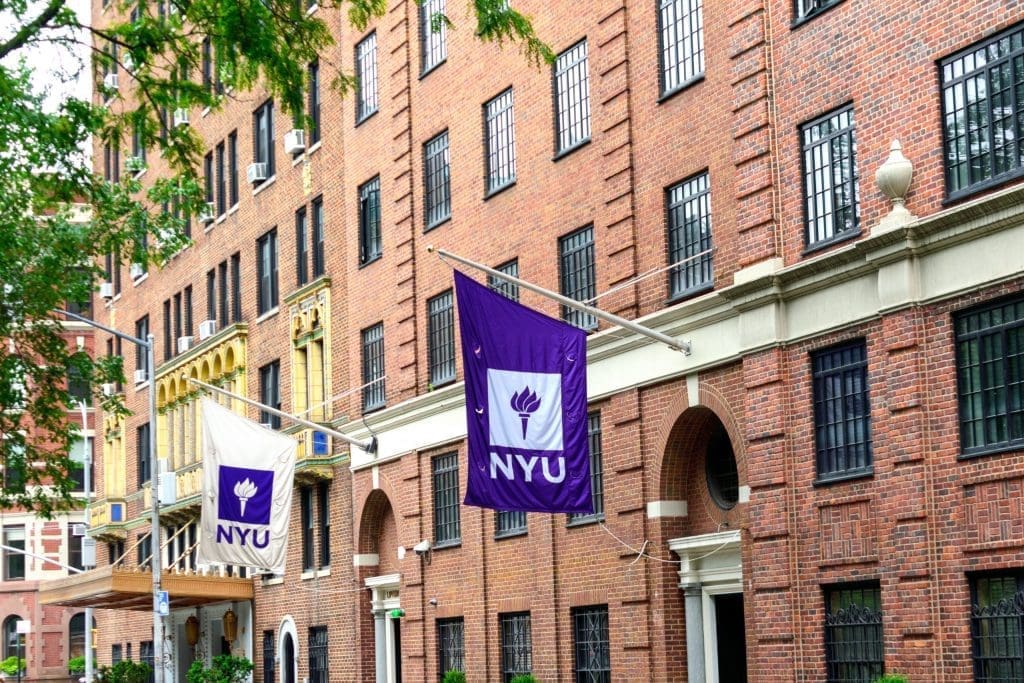Worried about your SAT or ACT scores? You’re not alone. Many top colleges and universities no longer require standardized test scores, giving you a chance to showcase your strengths in other areas. While important, academic test scores are not the sole factor when admissions committees are evaluating college applications.
Instead, admissions officers today typically consider multiple components of a student’s profile together, such as grades, college essays, extracurriculars, and letters of recommendation. This widely-practiced integrated process is known as “holistic” admissions. Like the rest of your application materials, test scores—if provided—are yet another piece of the puzzle for college admissions counselors to build a holistic picture of the applicant and assess your character as a person and student.
But are these standardized tests really necessary?
If you’re not a comfortable test-taker, or aren’t able to schedule and attend a testing session near you, there are alternatives out there. In this article, we’ll explore which top colleges and universities in the US don’t require standardized test scores to apply, and what you should submit instead. There’s no need to let a single test defeat your dreams. With this list in hand, your journey to college begins!

Applying to college can be stressful, especially when standardized tests like the SAT and ACT are involved. However, many schools now adopt a more flexible approach, recognizing that test scores don’t always define a student’s true potential. Whether you’re not a comfortable test-taker, lack access to testing centers, or prefer to emphasize other strengths, this guide will help you navigate the process confidently.
Are Standardized Tests Really Necessary for College Admissions?
The answer depends on the school’s specific admissions policy. For some institutions, test scores remain a core component of the application. Others have embraced test-optional policies, while some have gone completely test-blind.
Rise of Test-Optional Policies in the US
Over the last several years—following the effects of the global COVID-10 pandemic—standardized test scores have generally waned in importance when it comes to college admissions. As of 2024, over 80% of four-year colleges and universities in the United States will not require students to take or submit these exam scores. That’s right; if you choose not to submit your scores, you’ll likely be in the majority!
In the wake of these sweeping changes, here are the primary test policies you’ll encounter:
- “Test Required”: Some schools still mandate that applicants submit test scores, particularly for certain programs or scholarships.
- “Test Optional”: At test-optional schools, students can decide whether they want to submit standardized test scores as part of their application. This policy gives students the flexibility to highlight other parts of their application—like extracurricular activities, personal essays, or GPA—if their test scores aren’t as strong.
- “Test Blind”: In a test-blind policy, the college won’t consider standardized test scores at all, even if students submit them. This policy means test scores hold zero weight in the admissions decision.
- Exceptions and Substitutions: Some schools might not require test scores for general admissions but may still need them for specific programs or scholarships. Other schools may allow students to substitute scores with other materials, like Advanced Placement (AP) scores or International Baccalaureate (IB) scores.
Do Colleges Prefer the ACT or SAT?
Not really! Both the ACT and SAT are widely accepted across colleges in the U.S. Most schools don’t favor one over the other. Therefore, if you’re unsure which test will better highlight your skills, consider taking both and submitting your highest score. Either way, your application won’t be judged based solely on which test you chose.
Now, let’s take a look at which top colleges are test-optional or test-blind in 2024.

Top U.S. Colleges That Don’t Require Standardized Tests in 2024
Here’s a list of top universities that don’t require standardized test scores for 2024 admissions. Each institution is unique in its approach to testing, but all offer alternatives for students who want to showcase their strengths in ways other than the ACT or SAT.
University of Chicago
Acceptance Rate: 6%
Application Requirements: GPA, personal essays, extracurriculars, recommendation letters
The University of Chicago is known for its rigorous academic programs and intellectual culture, and has led the charge with test-optional admissions since 2018. It consistently ranks among the top universities in the world, with a strong emphasis on critical thinking and inquiry-based learning. Its famous Core Curriculum challenges students to explore diverse fields of knowledge.
Columbia University
Acceptance Rate: 6%
Application Requirements: GPA, letters of recommendation, personal essays, extracurriculars
Located in the heart of New York City, Columbia offers a dynamic urban campus experience combined with Ivy League academics. Its renowned Core Curriculum ensures a well-rounded education, while its global perspective attracts students from all over the world.
University of California, Berkeley
Acceptance Rate: 14%
Application Requirements: GPA, extracurriculars, personal statement (Test-blind)
UC Berkeley is a top public university with a reputation for academic excellence and progressive social activism. It boasts a diverse array of programs in the sciences, arts, and humanities and has long been a hub for innovation and critical thought. Go Bears!
University of California, Los Angeles (UCLA)
Acceptance Rate: 9%
Application Requirements: GPA, essays, extracurriculars (Test-blind)
UCLA is recognized for its vibrant campus life and strong academic programs across fields like engineering, the arts, and the social sciences. Situated in Los Angeles, it offers students countless opportunities in entertainment, tech, and business sectors.
New York University (NYU)
Acceptance Rate: 13%
Application Requirements: GPA, essays, letters of recommendation, extracurriculars (Test-optional)
Located in the heart of Manhattan, NYU is known for its global outlook and unique campus spread throughout the city. It offers top-tier programs in the arts, business, and public service, with strong ties to industries like media and finance.
Wake Forest University
Acceptance Rate: 29%
Application Requirements: Essays, recommendation letters, GPA (Test-optional)
A private university in North Carolina, Wake Forest blends the intimacy of a small college with the research capabilities of a large institution. Known for its teacher-scholar model, Wake Forest emphasizes close faculty-student relationships and a personalized educational experience.
Boston University
Acceptance Rate: 19%
Application Requirements: GPA, essays, extracurriculars (Test-optional)
Boston University is one of the largest private universities in the U.S., offering a wide range of undergraduate and graduate programs. Located in the heart of Boston, students have access to a thriving academic community and the benefits of an urban setting.
University of Notre Dame
Acceptance Rate: 15%
Application Requirements: GPA, personal essays, letters of recommendation (Test-optional)
Notre Dame, known for its strong Catholic tradition, excels in providing a values-based education that emphasizes leadership, service, and community. It offers highly regarded programs in business, engineering, and the liberal arts.
Amherst College
Acceptance Rate: 12%
Application Requirements: Essays, GPA, recommendation letters, extracurriculars
A member of the Five College Consortium, Amherst offers a flexible open curriculum that allows students to create their own academic journey. This small liberal arts college is known for its strong commitment to undergraduate education and close faculty mentorship.
Bowdoin College
Acceptance Rate: 9%
Application Requirements: GPA, personal essays, extracurriculars (Test-optional)
Bowdoin College, located in coastal Maine, emphasizes a well-rounded liberal arts education with a focus on environmental sustainability and social responsibility. Its small size fosters close-knit student communities and collaborative learning experiences.
Pitzer College
Acceptance Rate: 17%
Application Requirements: Essays, recommendation letters, GPA (Test-optional)
Pitzer, a member of the Claremont Colleges in Southern California, is known for its focus on social justice, environmental sustainability, and intercultural understanding. The college encourages self-designed majors and experiential learning.
Vassar College
Acceptance Rate: 20%
Application Requirements: GPA, personal essays, recommendation letters
Vassar is a liberal arts college in New York known for its inclusive, progressive campus culture and commitment to academic rigor. It offers interdisciplinary programs and promotes critical thinking across the humanities, social sciences, and natural sciences.
Wesleyan University
Acceptance Rate: 19%
Application Requirements: Essays, extracurriculars, GPA (Test-optional)
Wesleyan is known for its creativity and progressive campus environment. It offers a flexible, student-directed curriculum that encourages interdisciplinary study, particularly in the arts, humanities, and social sciences.
Smith College
Acceptance Rate: 30%
Application Requirements: Personal essays, recommendation letters, extracurriculars (Test-optional)
Smith College is a prestigious women’s college known for its strong programs in the humanities, social sciences, and STEM fields. It is part of the Five College Consortium and offers a supportive community that empowers women to lead and innovate.
Bates College
Acceptance Rate: 17%
Application Requirements: GPA, personal essays, letters of recommendation (Test-optional)
Bates is a liberal arts college in Maine that emphasizes social responsibility, academic rigor, and a collaborative learning environment. The college is known for its inclusive policies and commitment to the environment and community engagement.
Colorado College
Acceptance Rate: 14%
Application Requirements: Essays, extracurriculars, GPA (Test-optional)
Colorado College offers a unique Block Plan, where students focus on one class at a time for three-and-a-half-week terms. This allows for immersive learning experiences and a deep dive into academic subjects in a collaborative setting.
Mount Holyoke College
Acceptance Rate: 52%
Application Requirements: Essays, letters of recommendation, GPA (Test-optional)
As a member of the Seven Sisters, Mount Holyoke is a women’s liberal arts college known for its global perspective and dedication to empowering women leaders. It offers strong programs in the humanities, sciences, and social justice.
Skidmore College
Acceptance Rate: 31%
Application Requirements: GPA, personal essays, letters of recommendation (Test-optional)
Skidmore College in upstate New York is known for its emphasis on creative thinking, across disciplines ranging from the arts to the sciences. Its small size allows for personalized learning, and students often blend creativity with academic rigor.
Brandeis University
Acceptance Rate: 30%
Application Requirements: Essays, extracurriculars, GPA (Test-optional)
Brandeis is a research university located just outside Boston. It’s known for its focus on social justice and a commitment to providing a personalized liberal arts experience while offering the resources of a larger university.
The George Washington University
Acceptance Rate: 43%
Application Requirements: GPA, essays, extracurriculars (Test-optional)
Located in the heart of Washington, D.C., GWU offers students unique opportunities in politics, international relations, and public policy. Its proximity to government agencies and nonprofits makes it a prime choice for students interested in public service and global affairs.
American University
Acceptance Rate: 36%
Application Requirements: Essays, letters of recommendation, GPA (Test-optional)
Also in Washington, D.C., American University has a reputation for its strong programs in public affairs, international relations, and communication. The university is known for its commitment to sustainability and social responsibility.
Bryn Mawr College
Acceptance Rate: 38%
Application Requirements: GPA, personal essays, extracurriculars (Test-optional)
A women’s liberal arts college in Pennsylvania, Bryn Mawr is celebrated for its strong academic programs and supportive environment. Its focus on empowering women through leadership and academic excellence is complemented by close-knit student communities.
Trinity College
Acceptance Rate: 33%
Application Requirements: GPA, essays, recommendation letters (Test-optional)
Trinity College, located in Hartford, Connecticut, offers a rich liberal arts education in a small college setting. Known for its strong alumni network and focus on experiential learning, students engage deeply in both academic and community life.
St. John’s College
Acceptance Rate: 60%
Application Requirements: GPA, personal essays, extracurriculars (Test-optional)
St. John’s College is famous for its Great Books curriculum, where students engage with classic works of Western thought in small, discussion-based seminars. This approach offers a unique intellectual experience, focused on philosophy, literature, and history.
Sarah Lawrence College
Acceptance Rate: 55%
Application Requirements: GPA, personal essays, letters of recommendation (Test-optional)
Sarah Lawrence is known for its interdisciplinary approach to education and individualized curriculum. With a strong focus on the arts and humanities, students have the freedom to design their academic path through independent projects and close faculty mentorship.
Hampshire College
Acceptance Rate: 62%
Application Requirements: Essays, letters of recommendation, extracurriculars (Test-optional)
Hampshire College in Massachusetts is known for its non-traditional approach to education, offering no grades and no set majors. Students design their own programs of study and engage in hands-on, experiential learning projects across disciplines.
Still seeking your dream college?
So, nothing on this list strikes your fancy? The campuses we covered today are not the only options for colleges and universities that don’t require standardized tests. In fact, far from it. If you’re still seeking the spark of your best-fit college, consider reaching out to Empowerly to work with a private college counselor to develop a strategy. Our team of data researchers and college experts can help you build a future you’re truly excited to lead.

Final Notes
When navigating the test-optional policies at various schools, it’s important to take a strategic approach. Standardized tests are just one aspect of your overall application, and knowing when to submit your scores can make a difference in how admissions officers view your application.
Guidance on Submitting Scores
If you’re applying to test-optional schools, you might be unsure whether or not to submit your standardized test scores. The key is to consider how your scores compare to the middle 50% range of admitted students at the school you’re targeting.
- If your score is within or above the middle 50% range: This is the range of test scores that most admitted students fall into.
- If your score is below the middle 50% range: In this case, it might be best to focus on highlighting other parts of your application, such as your GPA, essays, extracurriculars, or leadership experiences.
Overall, it’s important to think about your test scores in the context of your complete application. Some students may excel in standardized testing, while others may stand out through other achievements and qualities. Tailoring your application to highlight your strengths is the best approach in a test-optional environment.
Regional or International Considerations
For regional and international applicants, it’s important to confirm whether test-optional policies apply to you. Policies may differ based on your location, and some schools have specific guidelines for international students.
- Regional Applicants: Most U.S. colleges apply their test-optional policies universally to all applicants, regardless of where they are located. However, some schools may have additional requirements for out-of-state applicants or specific regions. It’s always a good idea to check with the admissions office to ensure that you are meeting all necessary criteria.
- International Applicants: If you’re applying from outside the U.S., the situation may vary depending on the school. Some U.S. colleges require international students to submit alternative credentials such as English proficiency tests (like TOEFL or IELTS), and others may ask for national exam results from your home country. While many test-optional schools extend this policy to international applicants, certain schools may still require standardized tests or additional documentation to assess academic readiness. Be sure to research each institution’s admissions policies carefully or contact the admissions office directly if you have any questions.
Your journey is only beginning…
While standardized tests have been a traditional part of the college application process, they are no longer the gatekeepers they once were. More schools adopting test-optional or test-blind policies give students greater opportunities to showcase their unique strengths. Remember, your test score is just one piece of the puzzle, and at many top colleges, it may not even be necessary at all.
Ready to take the next step in your college journey? Consider scheduling a free consultation to learn how you can maximize your college application success without standardized test scores! With the guidance of a college counselor, you can learn how to craft a compelling narrative in your essays, enhance your extracurricular profile, and get personalized advice on test-optional strategies.

